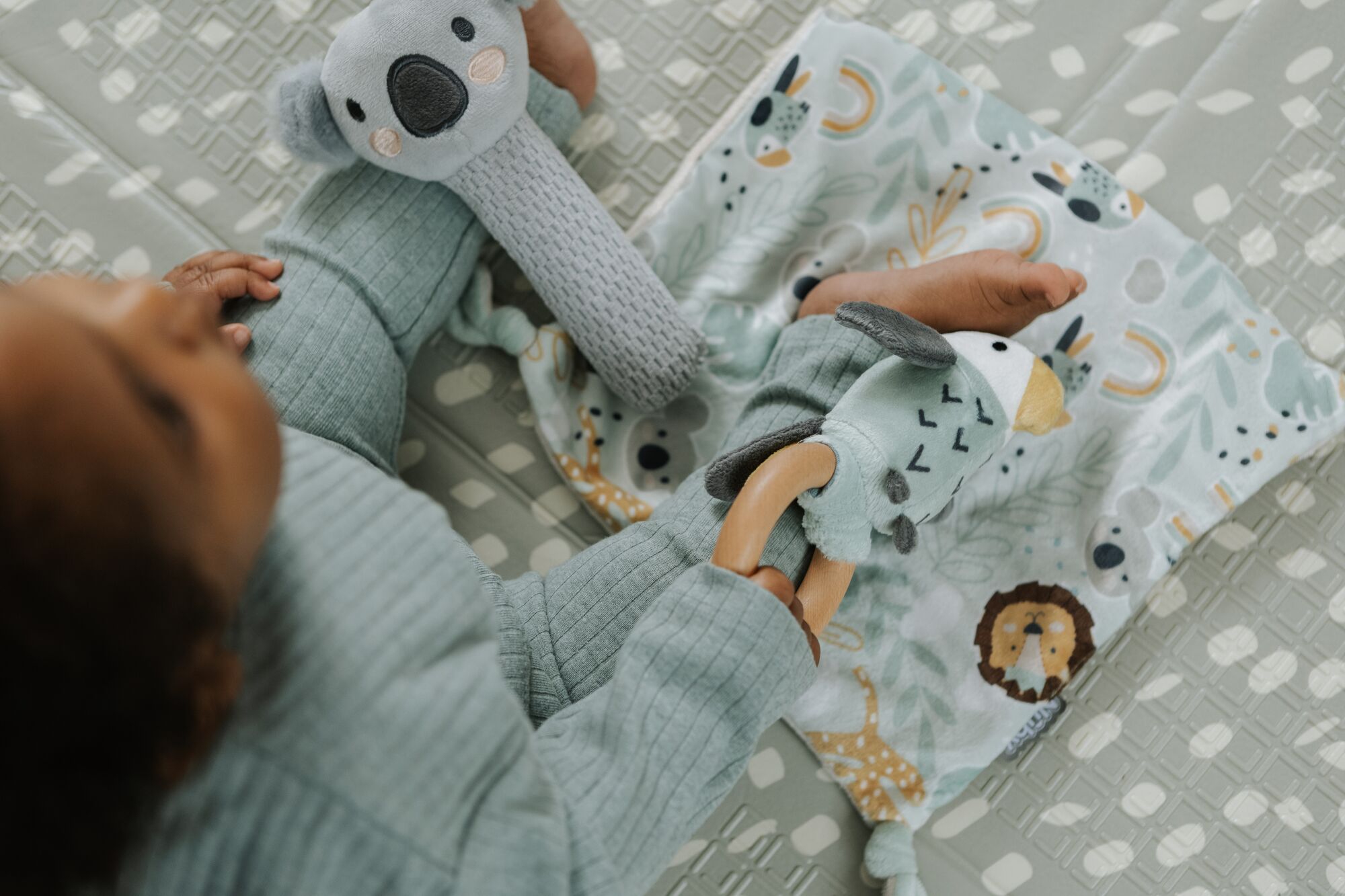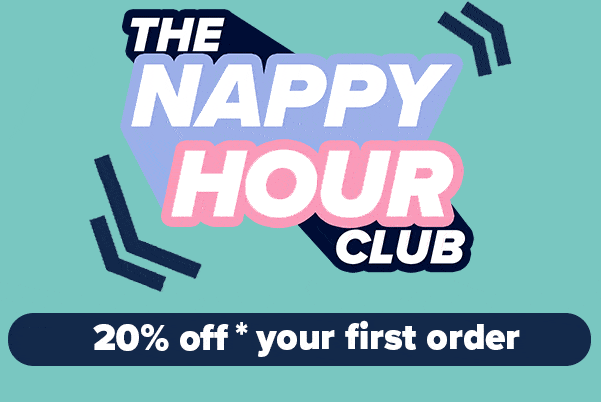As a parent, you’ve probably heard people talk about fine motor skills and let’s be honest, you might have wondered, what are they?
You’re not alone. That’s exactly why we’ve created this blog to tell you what you need to know. Including what they are, what they look like and fun ways you can help your baby develop them. We’ve popped it all into three age stages: 0–3 months, 3–6 months and 6–12 months.
So, what are fine motor skills?
To put it simply, fine motor skills are the small movements that involve the hands, wrists and fingers. Think picking up toys, twisting lids, buttoning clothes or later on, holding a pencil. For adults these actions are second nature now but for babies, they’re a whole new world to explore and learn.
The good news? Helping your baby develop these skills doesn’t mean a strict routine or loads of prep. It’s as easy as offering toys that spark curiosity and encourage movement.

Fine motor skills: 0–3 months
Examples you might spot:
- Grasping your fingers – There’s nothing quite like that first little grip around your finger, and yes, it’s a fine motor skill in action.
- Reaching for objects – As your baby gets more alert, you might notice them start to reach out for things that catch their eye.
- Holding items placed in their hand – They may only hold it for a quick second but it still counts.
Activities to try:
- Baby play gym – A great first toy for your baby to practise reaching and grabbing. The hanging toys tempt tiny hands to reach and explore.
Animal Adventures Baby Play Mat with Gym
- Textured toys – Squishy, crinkly, fluffy… toys with different textures give babies something to explore.
Monkey Teether Blanket
- Pram spiral – Whether in the pram or car seat, these spirals with dangly toys keep babies entertained and give them something to reach for.
Penguin Activity Spiral Travel Pram Toy
Fine motor skills: 3–6 months
What you might notice:
- Using all fingers to pick things up – This is called the raking grasp, where babies scoop up objects with their whole hand.
- Reaching with both hands – Coordinating both hands at once is a big step forward.
- Shaking a rattle – If they’ve got a rattle nearby don’t be surprised if they start giving it a shake.
Activities to try:
- Baby rattles – Light and easy to grip, rattles are great for developing those hand muscles.
- Bath toys – Simple bath time toys like jugs or soft squirters encourage gripping and hand eye coordination.
Fun Watering Can
- Lining up toys – Try putting a few favourites in front of your baby and encourage them to reach for one.
Teething Toy Set Bundle
Fine motor skills: 6–12 months
As your baby gets closer to becoming a toddler their hands and fingers start doing all sorts of clever things.
Skills to look out for:
- Pincer grasp – This is a thumb and forefinger grip, often used to pick up tiny things like cereal.
- Pointing – Around 8 months, babies might start using their index finger to point or poke.
- Clapping hands – Around 9 months, expect some clapping.
- Banging objects together – Just like clapping, only louder.
- Dropping objects into your hand – From 10 months, they might be able to give you toys on request.
- Placing objects in containers – From about 11 months, babies may begin putting things back in their toy box.
Activities to try:
- Stacking toys – These challenge babies to use both grasping and placing skills. Plus, they’re a great intro to early problem solving.
Icy Bite Stacking Rings
- Holding their own bottle – As your baby gets more confident, encourage them to hold their own bottle during feeds or when they are drinking water.
All Around Beaker
- Self feeding with a spoon – Mealtimes become mini training sessions. Let them hold their spoon and guide it to their mouth, it might get messy, but it’s all part of the fun.
Baby Weaning Spoons
Remember every baby develops at their own pace, so don’t worry if yours is doing things earlier or later than expected. If you ever feel unsure, it’s always best to check in with your health visitor or GP.
Looking for other fine motor skills activities for your baby? Take a look at our other toys, which help fine motor skills, including our avocado stacking toy, bath toy cog set and little learner cubes.








